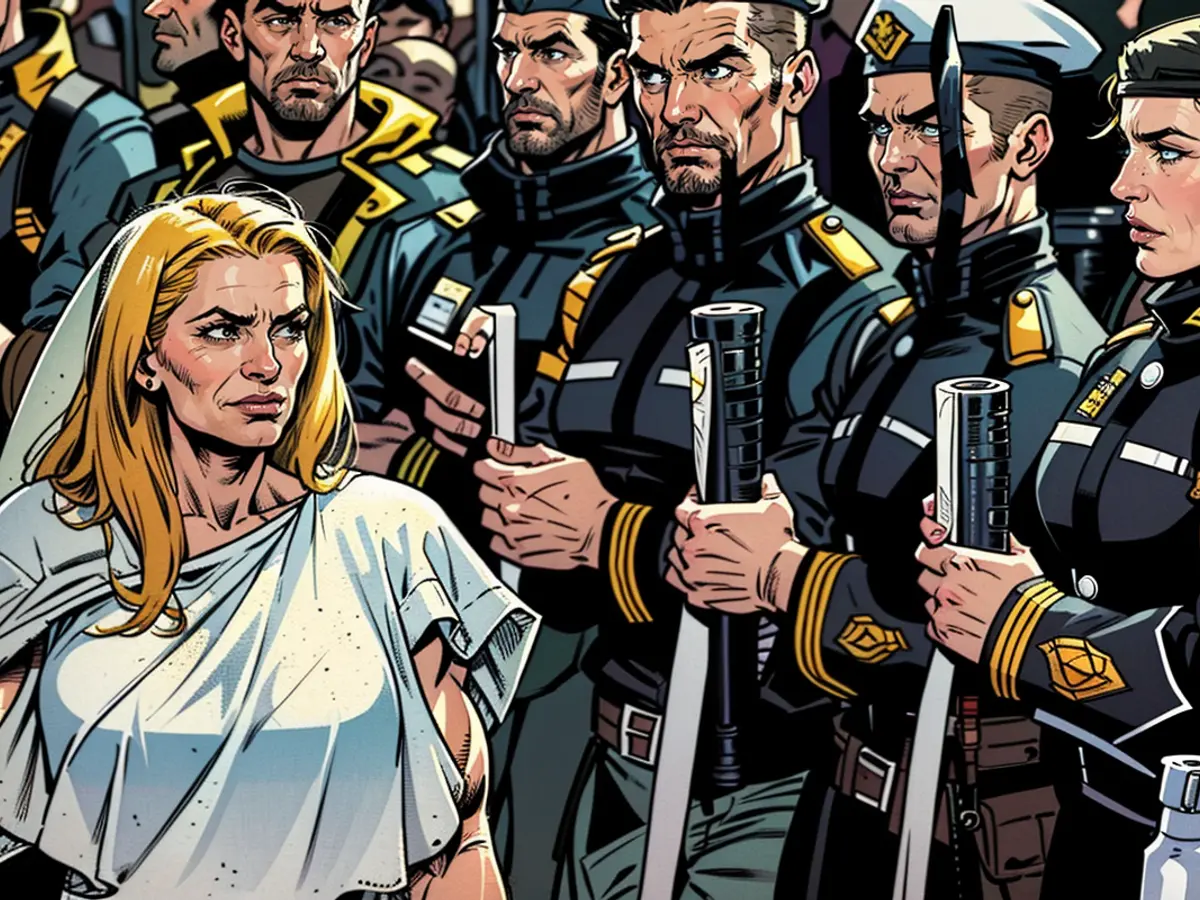Bangladesh's Prime Minister used "trauma as a weapon"
Bitter Feuds with Opponents, Accusations of Election Rigging, Suppression of Press Freedom: Sheikh Hasina Cements Power as Bangladesh's Prime Minister Before Being Ousted by Her Own People. The Murder of Her Father Was Pivotal.
After 15 years in power, the reign of Bangladesh's Prime Minister Sheikh Hasina ended in infamy: The 76-year-old leader fled the country in a military helicopter after weeks of protests.
Observers see Hasina's political life shaped by tragedy: On August 15, 1975, her father, Bangladesh's first leader, Sheikh Mujib Rahman, was killed in a military coup. That fateful night, the then-28-year-old Hasina was in Germany with her younger sister. A group of officers stormed the family's house in the capital Dhaka and killed her parents, three other siblings, and the household staff - a total of 18 people.
This brutal act may have driven Hasina to secure unprecedented power. "Hasina, as a politician, has a very strong trait - using traumas as a weapon," said Avinash Paliwal, a former university lecturer specializing in strategic issues in South Asia, in January before the parliamentary election.
After the coup, Hasina lived in exile in India for years before returning to Bangladesh and taking over the leadership of the Awami League. However, the military rulers of the country placed her under house arrest several times in the 1980s until she became Prime Minister for the first time after the 1996 parliamentary election.
Hasina Boosted Infrastructure
A decade-long power struggle ensued between Hasina and former Prime Minister Khaleda Zia, the chairperson of the current largest opposition party BNP. Zia is under house arrest. The two women ruled the country alternately for years, fueling a bitter rivalry that divided Bangladesh's politics. Hasina often accused the BNP of courting extremists who wanted to eliminate her party, which describes itself as moderate and secular. The BNP, in turn, accused the Awami League of staying in power through repression.
As the latest protests turned violent, the two politicians traded accusations. The BNP supported the students and repeatedly demanded Hasina's resignation. The Prime Minister, however, accused the opposition of inciting violence.
After losing the 2001 parliamentary election, Hasina became opposition leader. Political violence, unrest, and military interventions characterized the years until her re-election. Back in power in 2009, Hasina focused on the economy and boosted infrastructure: a robust power grid reaching remote villages, along with large projects like highways, railway lines, and ports. Bangladesh's garment industry became one of the most competitive in the world. The profits from this development led to further progress. Girls received the same education as boys, and more women entered the workforce. People close to her described Hasina as pragmatic and passionate about promoting women and the poor.
Ties to the US Strain Relations
International, Sheikh Hasina cultivated ties with influential countries like India and China. However, the US and other Western nations expressed concerns over human rights abuses and restrictions on press freedom, straining these relationships. In January, after securing a fourth term, the US and UK declared the elections not free or fair. Previous elections in 2018 and 2014 were marred by allegations of vote rigging and opposition boycotts.
Critics have long accused Hasina's government of silencing dissent using harsh methods, curtailing press freedom, and suppressing civil society. Human rights groups claimed the Dhaka government was making critics disappear, which it denied. When protests against a quota system for government jobs began in June, the government's heavy-handed approach only fueled the demonstrations, observers noted. Unexpectedly, these protests evolved into a widespread uprising against Hasina and her government, which had weathered many crises before.
The latest protests coincided with a time of economic upheaval in Bangladesh, driven by a global economic downturn. Before the January election, there were worker protests and general dissatisfaction with the government. However, the latest unrest highlighted the extent of the country's economic distress, with exports declining and foreign exchange reserves dwindling. Experts say there are not enough well-paying jobs for young graduates, who increasingly seek stable and lucrative government jobs.
"In the past 15 years under Awami League rule, there have been many protests, but none as large, long-lasting, and violent as this one," said Michael Kugelman, director of the South Asia Program at the Wilson Center. The government's particularly harsh response, pent-up anger towards the state, and growing economic pressure led to the escalation.
Following her re-election, international criticism of Bangladesh's Prime Minister Sheikh Hasina intensified, with the US and UK declaring the elections not free or fair due to concerns over human rights abuses and suppression of press freedom.
Despite these criticisms, Hasina maintained strong ties with influential countries, such as India and China, which further complicated Bangladesh's diplomatic relationships.








